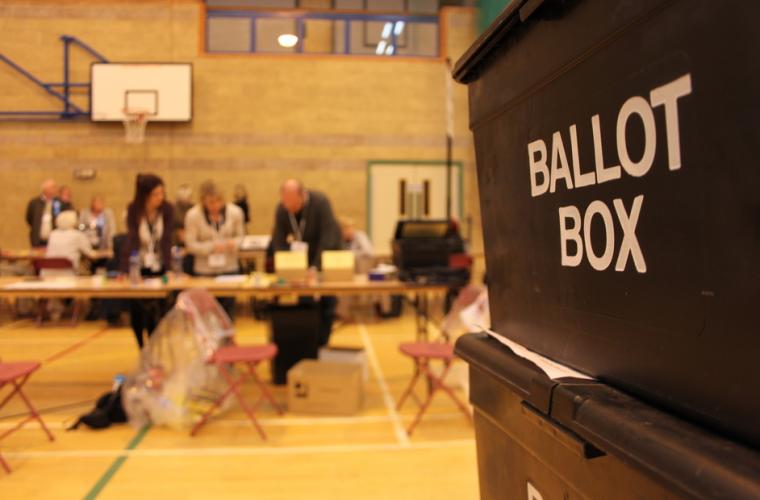The LGA has joined forces with the Electoral Commission and the Jo Cox Foundation to call for no abuse towards candidates at this set of local elections.

The Local Government Association (LGA) has joined forces with the Electoral Commission and the Jo Cox Foundation to call for no abuse towards candidates at this set of local elections.
The organisations have urged voters to treat candidates in the upcoming local elections with dignity and respect and to not engage in behaviour that may constitute harassment or intimidation.
The call comes amid concern about the growing levels of abuse and intimidation aimed towards local councillors which can become heightened during election campaigns.
Recent LGA research found that three quarters (75 per cent) of councillors in England and Wales experienced some form of intimidation or abuse during the 2023 local election campaign.
A survey by the Electoral Commission also revealed that nearly a quarter (24 per cent) of candidates at the last set of local elections experienced someone intentionally making them feel unsafe. 12 per cent of those who experienced harassment reported this to the police.
The LGA, which represents councils in England and Wales, is warning that rising levels of abuse towards local politicians is a threat to democracy and is potentially putting off good talented people from becoming councillors.
Levels of abuse and intimidation aimed at councillors have been increasing, with 82 per cent of councillors feeling personally at risk in 2023, up 9 per cent from the year before.
This has prompted the LGA to launch its Debate Not Hate campaign to help to tackle the issue. The campaign aims to raise public awareness of the role of councillors in their communities, encourage healthy debate and improve the responses and support for local politicians facing abuse and intimidation.
Although the majority of abuse is at a low level, a growing number of councillors have experienced more severe abuse, including stalking and threats of violence, some of which has resulted in criminal prosecutions.
Cllr Marianne Overton, Chair of the LGA’s Civility in Public Life Steering Group, said:
“Being a councillor is one of the most unique and rewarding roles you can have.
“It’s really important that everyone participating in these local elections are treated with respect, focussing on the debate itself and free of abuse and intimidation.
“It is profoundly disturbing to hear reports of councillors being harassed and intimidated whilst doing their job. It cannot become the norm that councillors need to install CCTV and panic alarms in their houses to feel safe whilst fulfilling their democratic duty.
“Anyone, regardless of their background or political affiliation, should feel safe to become a councillor. We must do all we can to stamp out abuse from public life and encourage healthy debate if we are to safeguard the future of our local democracy.”
Louise Edwards, Director of Regulation and Digital Transformation at the Electoral Commission, said:
“The safety and security of candidates and elected representatives is of paramount importance, and it should go without saying that there is no place in a democracy for abuse or intimidation of those who participate in elections. Yet our research shows that candidates standing for election experience abuse, threatening behaviour and intimidation during their campaigns – both on social media and in person.
“No-one should be dissuaded from running for fear of abuse during a campaign. It benefits all voters for there to be a wide and diverse pool of candidates to choose from, so it’s important that candidates feel safe. We will be working with parties and campaigners ahead of the elections this year to understand their experiences, ensure they understand how to report abuse and to discuss the standards of behaviour that all candidates should be able to expect.”
Su Moore, CEO of the Jo Cox Foundation said:
"Abuse and intimidation of elected politicians is a threat to democracy in this country. The Jo Cox Civility Commission call to action, published earlier this year, has a clear set of recommendations that, if implemented, can make a genuine impact on this serious issue at a national and local level. We fully support the Local Government Association's Debate Not Hate campaign, and their call for respect during the forthcoming election."
Notes to editors
Elections will take place on Thursday 2nd May in 107 councils as well as combined authority elections in Greater Manchester, Liverpool City Region, Tees Valley and the West Midlands. There will also be elections for the London Mayoralty, the Greater London Authority Assembly and Police and Crime Commissioners.
Voters will be expected to bring a form of identification to be able to vote. The full list of accepted ID can be found here.
The LGA produced a toolkit, ‘Seven principles for safer canvassing: A guide for councillors and candidates’ which is available on the LGA’s website.
